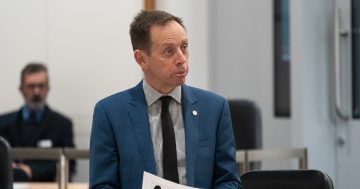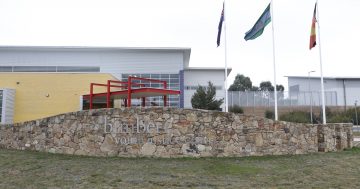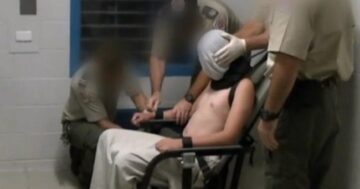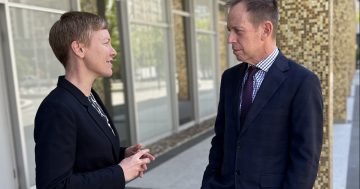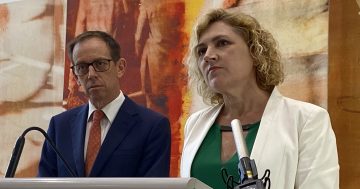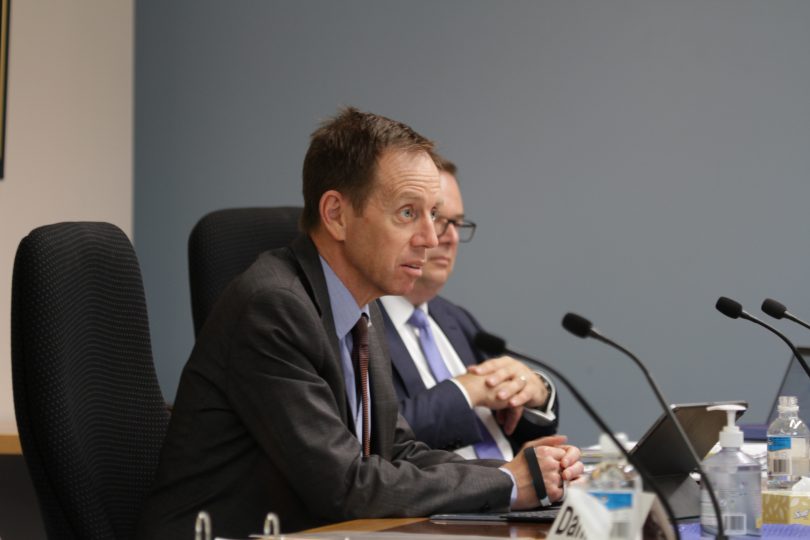
Attorney-General Shane Rattenbury is progressing with raising the age of criminal responsibility in the ACT. Photo: Dominic Giannini.
Attorney-General Shane Rattenbury will present a discussion paper to Cabinet next week on increasing the age of criminal responsibility in the Territory from 10 to 14.
After failing to reach national consensus on raising the issue, the ACT vowed to push forward with the law reform. Mr Rattenbury said putting children as young as 10 in prison was traumatising and counterproductive.
“When children are imprisoned, it sets the trajectory for the rest of their lives and increases the risk they will be involved in the adult criminal justice system as they mature,” he said.
“We know it is better to provide them with the help they need to stay on the right path, which is why it is a very high priority for me as the ACT Attorney-General.”
Youth Justice Minister Emma Davidson wants the Bimberi Youth Justice Centre to become an absolute last resort for young people.
The new laws, if passed, would only affect a handful of detainees at Bimberi who are under the age of 14.
“Young people do not belong in prison. They need support and connection with a well-resourced sector to help them and their families during challenging times or crises,” Ms Davidson said.
“Part of this is raising the age of criminal responsibility, but for this work to succeed, we need to address the social determinants which lead young people into the youth justice system.
“We must ensure services are holistic, accessible and strength-based so young people and families are supported, particularly when they are experiencing multiple complex issues.”
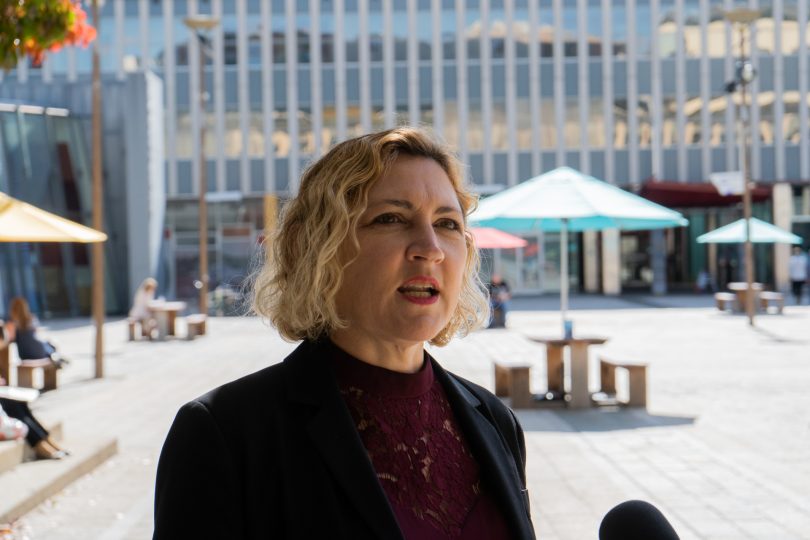
Youth Justice Minister Emma Davidson said Bimberi should only be used as a last resort for youth justice. Photo: Dominic Giannini.
Mr Rattenbury and Ms Davidson joined the ACT Council of Social Service, the Australian Council of Social Service and the councils’ state and territory counterparts at Parliament House on Wednesday (16 June) to call on Commonwealth, state and territory governments to raise the age of criminal responsibility.
The Legislative Assembly passed a motion committing the ACT Government to the policy before the ACT election last year.
Increasing the age of criminal responsibility would be an Australian first and would bring the ACT in line with the United Nations threshold.
In February this year, the government engaged prominent child welfare researcher Emeritus Professor Morag McArthur to identify the risks and extra services required to enact the policy successfully.
Professor McArthur was contracted for six months and will specifically look at Aboriginal and Torres Strait Islander young people and their families due to their overrepresentation in the ACT’s criminal justice system.
Her final report is due on 2 August, although it may be extended by three months if required.













